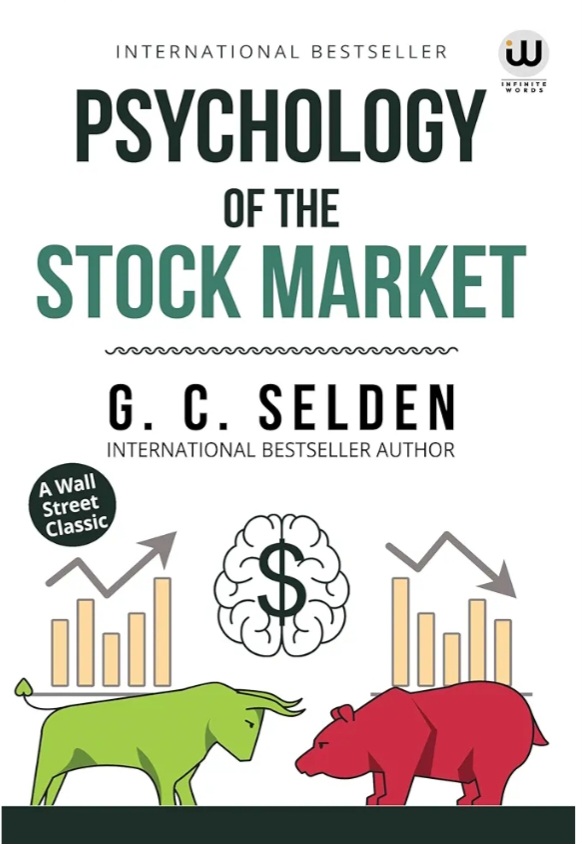The Psychology of the Stock Market

Understanding Investor Behavior and Market Psychology
Originally published in 1912 by G.C. Selden, this timeless classic explains how human emotions, crowd behavior, and psychology shape the stock market more than numbers do.
Introduction – The Market is Human
Stock prices are not only driven by earnings and news, but by the hopes, fears, and actions of investors.
Lesson 1 – The Power of Fear and Greed
Greed drives bubbles; fear drives crashes. These two emotions dominate market cycles.
Lesson 2 – The Crowd Mind
Individuals think rationally alone but often lose logic when part of the market crowd, following trends blindly.
Lesson 3 – The Role of Hope
Investors cling to hope in losing positions, delaying rational decisions and worsening losses.
Lesson 4 – Overconfidence and Ego
Traders often overestimate their knowledge, leading to risky decisions and costly mistakes.
Lesson 5 – Panic and Capitulation
Markets crash when fear spreads rapidly; panic selling often signals bottoms.
Lesson 6 – Market Cycles and Psychology
Markets move in cycles of optimism and pessimism—understanding psychology reveals where we are in the cycle.
Lesson 7 – Contrarian Thinking
Opportunities arise when the crowd is wrong. Smart investors go against extreme market sentiment.
Lesson 8 – Emotional Discipline
Success requires self-control, patience, and detachment from fear and greed.
Quick Reference — One-line Takeaways
- Markets are ruled by human psychology, not just numbers.
- Fear and greed drive bubbles and crashes.
- The crowd often makes irrational decisions—be cautious of herd mentality.
- Discipline and emotional control are key to success.
- Contrarian thinking can uncover the best opportunities.
Ready to Master Market Psychology?
Control your emotions before they control your trades. Learn from Selden’s timeless insights to improve your investing mindset.
📖 Get the Book Now